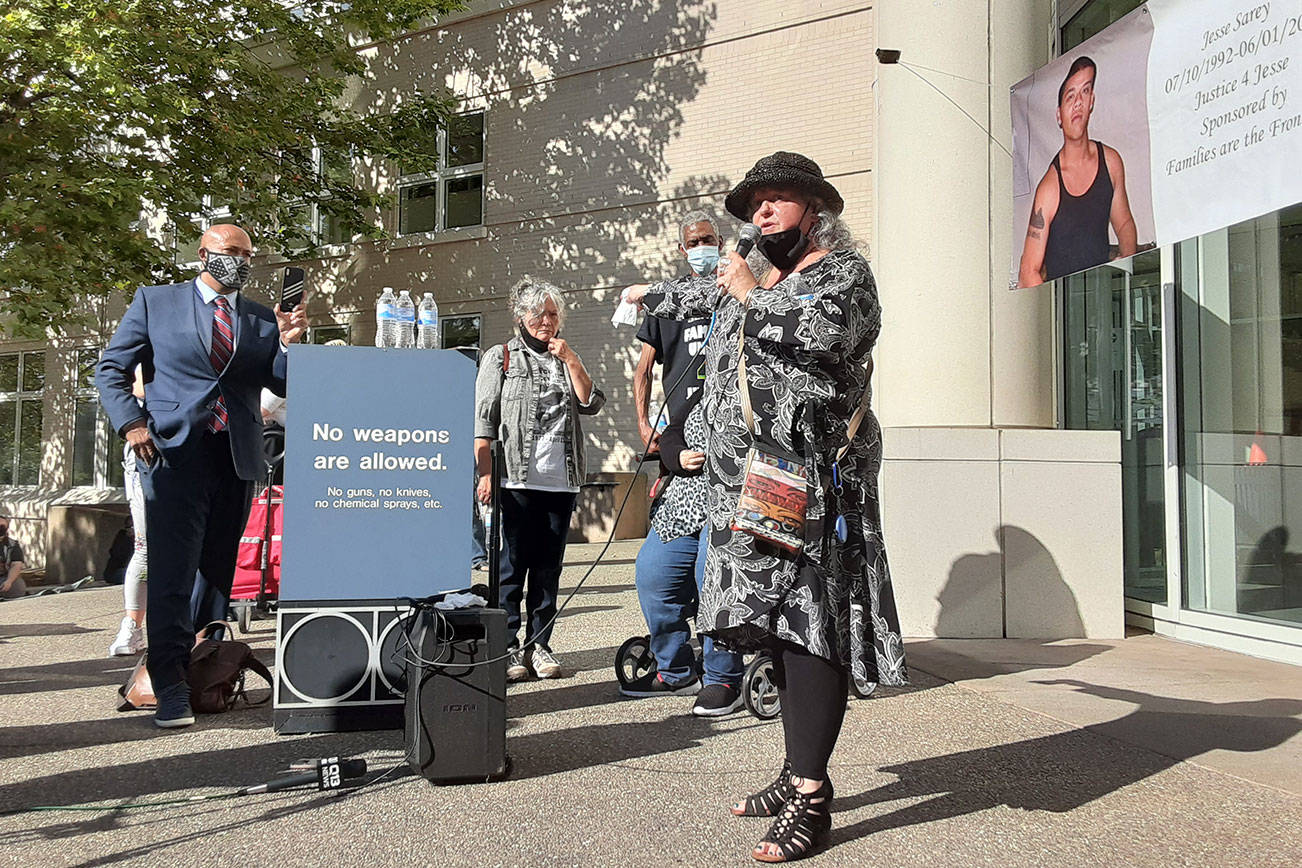In a joint lawsuit against King County, the Washington State Supreme Court ruled in favor of the families of Charleena Lyles, Damarius Butts and Isaiah Obet, who were killed by police.
The Supreme Court ruled July 15 that the officers who killed their family members can be compelled to testify about the killing during the coroner’s inquest. Obets, Lyles and Butts were all people of color.
A coroner’s inquest is required by county law anytime a police officer kills somebody in the line of duty. The purpose of the inquest is to shed light on the facts surrounding a killing at the hands of law enforcement, according to the county website.
The rule compelling police to testify about a killing was created by an executive order that King County Executive Dow Constantine issued in 2018. Several cities, including Auburn, and the King County Sheriff’s Office sued Constantine over his executive orders. The King County Superior Court struck down Constantine’s rules prior to the case making it to the Supreme Court.
In addition to compelling officers to testify in court about killings they did, the Supreme Court also decided an inquest jury can determine whether the officer acted with criminal means, according to the ruling.
However, if a jury decides the officer acted with criminal means, it does not necessarily mean the officer will face criminal charges, said La Rond Baker, the King County Department of Public Defense’s special counsel for affirmative litigation and policy.
Auburn Police Officer Jeffrey Nelson fatally shot Isaiah Obet once in the torso and once in the head in 2017. Nelson is currently awaiting trial for the second-degree murder and first-degree assault for the death of 26-year-old Jesse Sarey in 2019.
The ruling means that the inquests regarding each death can resume.
“Police investigating police does not work,” said attorney Amy Parker, who represented Obet’s family. “The inquest can be a useful tool to investigate police killings of community members, but the panel must answer whether the officer committed a crime for the process to have any teeth. This is what the Legislature intended, and it is consistent with the fundamental and historical purpose of an inquest.”
The cities of Auburn, Federal Way, Renton and Kent all sought to block families’ ability to require police to testify, according to a press release by King County’s Department of Public Defense.
“Coroner’s inquests are an important feature of state and local law in Washington,” Justice Debra Stephens said in the ruling. “They empower community members to conduct thorough, transparent and public death investigations, including when individuals like Damarius Butts, Isaiah Obet and Charleena Lyles are shot and killed by police.”
Coroner’s inquest hearings are open to the public.
Talk to us
Please share your story tips by emailing editor@kentreporter.com.
To share your opinion for publication, submit a letter through our website https://www.kentreporter.com/submit-letter/. Include your name, address and daytime phone number. (We’ll only publish your name and hometown.) Please keep letters to 300 words or less.

